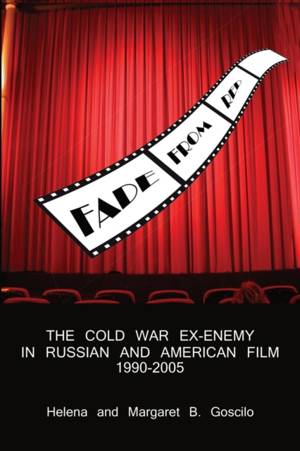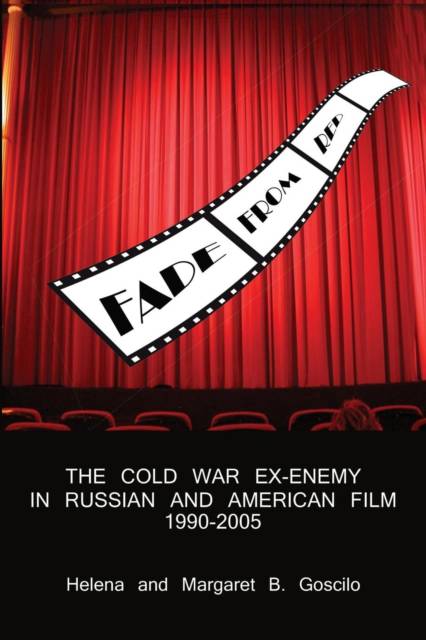
Door een staking bij bpost kan je online bestelling op dit moment iets langer onderweg zijn dan voorzien. Dringend iets nodig? Onze winkels ontvangen jou met open armen!
- Afhalen na 1 uur in een winkel met voorraad
- Gratis thuislevering in België vanaf € 30
- Ruim aanbod met 7 miljoen producten
Door een staking bij bpost kan je online bestelling op dit moment iets langer onderweg zijn dan voorzien. Dringend iets nodig? Onze winkels ontvangen jou met open armen!
- Afhalen na 1 uur in een winkel met voorraad
- Gratis thuislevering in België vanaf € 30
- Ruim aanbod met 7 miljoen producten
Zoeken
Fade from Red
The Cold-War Ex-Enemy in Russian and American Film, 1990-2005
Helena Goscilo, Margaret B Goscilo
Paperback | Engels
€ 40,95
+ 81 punten
Omschrijving
This book offers a political reading of Russian and American films in the Yeltsin era. It explores how, after the initial euphoria, both Russian cinema's and Hollywood's representation of the "partner" relied on old strategies to preserve claims of national superiority. This study investigates the close correlation between politics and mainstream cinema vividly evidenced in Russian and American screen images of the former Cold War enemy from 1990 to 2005. Whereas glasnost and the demise of the Soviet Union ushered in a period of official cooperation that soon inflated into rhetorical declarations of partnership, the fifteen years under examination saw the gradual deterioration of relations after the initial euphoria, culminating in a partial resumption of mutual Cold War recriminations. "The authors take an innovative transnational approach, analyzing the ways that Russian and American films cast the former Cold War enemy in the fifteen years after the conflict's end. Helena and Margaret Goscilo's study is dense, well-written, full of insights, and makes an important contribution to Russian/American film studies as well as scholarly works on the cultural Cold War." -Stephen Norris, Associate Professor of History, Miami University, and author of Blockbuster History in the New Russia: Movies, Memory, and Patriotism "This is a splendid book. It's what every scholarly book should be, but almost never is: superbly researched, vividly written, intrinsically interesting. The Goscilos tell a fascinating story: how Russian and American cinema continued to shape perceptions of the "other" after Cold War tensions had supposedly faded. It should be read by everyone interested in post-Cold War history, Russian and American culture, and the politics of cinema." ―Denise Youngblood, Professor of History, University of Vermont and author of Russian War Films: On the Cinema front, 1914-2005.
Specificaties
Betrokkenen
- Auteur(s):
- Uitgeverij:
Inhoud
- Aantal bladzijden:
- 428
- Taal:
- Engels
Eigenschappen
- Productcode (EAN):
- 9780990693918
- Verschijningsdatum:
- 28/11/2014
- Uitvoering:
- Paperback
- Formaat:
- Trade paperback (VS)
- Afmetingen:
- 152 mm x 229 mm
- Gewicht:
- 625 g

Alleen bij Standaard Boekhandel
+ 81 punten op je klantenkaart van Standaard Boekhandel
Beoordelingen
We publiceren alleen reviews die voldoen aan de voorwaarden voor reviews. Bekijk onze voorwaarden voor reviews.











